Anyone can be a hero: Why I love ‘Percy Jackson & The Olympians’

Though I first read the Percy Jackson books when I was 17, still, 12 years later, I think it is one of the best series I have ever read.
I am older than the characters, and yet I find new ways to love the series, laugh at its jokes and cry over the sweet, shared moments between the characters.
Percy Jackson and the Olympians spans five books, written by acclaimed author Rick Riordan. The first book of the series was published in 2005 and follows the main character, 12-year-old Percy, as he learns that the Greek gods are in fact real and that he is a demigod, the son of Poseidon, the god of the sea and rivers, creator of storms and floods, and the bringer of earthquakes and destruction. A native New Yorker, Percy learns that "Olympus" is located in his hometown, atop the Empire State Building, as the Greek capital changes with modern times.
The first book, Percy Jackson: The Lightning Thief (2005), introduces Percy, his new friends, and how he adjusts to this life-changing news. We get to see Percy become a true hero as he balances normal adolescent adjustments—bullying, home drama, and navigating friendships—as well as demigod dilemmas like fighting actual gods, upsetting ancient deities, and having to battle monsters.
The writing is witty and straightforward, it sounds like a close friend you have not seen in a while is catching you up on everything you missed. The books are meant for kids, but they do not talk down to them.
This might have to do with the fact that Riordan was a middle school teacher. As per reports, he got into the habit of telling his son stories of the heroes of Greek mythology: Achilles, Hercules, Aeneus. When he ran out of myths to tell, his son told him to make one up—and Percy Jackson was born.
I love the books for their exploration of friendship and loyalty. With his two best friends by his side, Annabeth Chase, daughter of Athena, and Grover Underwood, a satyr, Percy is never alone throughout the series, even through his darkest of times.
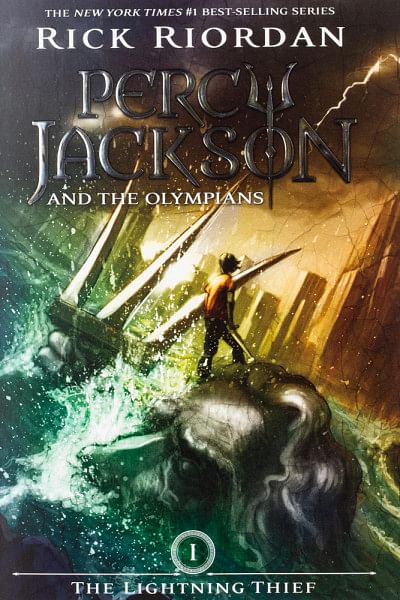
The two support him no matter what he's going through, whether it's fighting with Ares, the god of war, or being turned into guinea pigs by Greek sorceress Circe. Even when he is going through friendship breakups or experiencing betrayal, a constant throughout the entire series is the love and support Percy receives from his two best friends. At Camp Half-Blood, the place where all demigods stay and train, we also see Percy interacting with other minor characters, portraying different types of friendships that vary from his main group but still exemplify the importance of connecting with and maintaining relationships with others who can relate to you.
Riordan does an excellent job of highlighting different identities in his novels, providing representation for a range of groups. From mental health struggles to characters with different racial and LGBTQ+ backgrounds, the series shines a light on people—and heroes—of diverse identities.
Percy himself is challenged by ADHD and dyslexia, but he learns at Camp Half-Blood that all the demigods have the same disabilities he has. The ADHD actually is meant to serve them well in battle as they have to think fast and be extremely mobile, and the dyslexia represents a brain hardwired to read Greek rather than English.
The novels explicitly show how these diagnoses are what make Percy who he is and how they are never seen as an ailment to him or his friends.
Along with candid conversations about his diagnoses, the books dig deeper into the abusive domestic relationship between Percy's stepfather and his mother and how it has an effect on Percy himself.
Throughout the series, Riordan makes it very clear that a demigod can come from any background, having characters of a variety of races and cultures in the novels and allowing their cultural identities to be brought to the forefront.
The film adaptations of the books were disappointing because of how highly readers thought of the source material. Fans piled into the theatres to see that the actors were too old. The ageing-up of the characters to 17 rather than 12 allowed the writers and producers to sexualise them very early on.

The two movies, Percy Jackson and the Lightning Thief (2010) and Percy Jackson: Sea of Monsters (2013) were massive misfires, focusing too much on the romance and taking out a lot of the core values of the books in order to be more marketable. In the process, they lost their audience, and as a result, the series of movies was never completed.
But there is still hope. Right now is arguably the best time to read the series, as Disney+ is coming up with a show based on the books. A teaser for the same was unveiled at the D23 Expo 2022.
With Walker Scobell, recent star of The Adam Project (2022), playing Percy and Leah Sava-Jeffries playing Annabeth alongside Aryan Simhadri as Grover, the series is going to be portrayed with age-appropriate actors. Moreover, the Disney+ series has an added benefit that the original movies did not have: nostalgia.
For better or worse, nostalgia has become a key factor in the success of many Hollywood franchises these days. Since the Percy Jackson books have managed to retain long-term love and adoration from its fanbase, the series already has its foot in the door and stands a better chance of catching on and becoming a hit.
Riordan had very little to do with the film adaptations of his books, so his inclusion in the new series has me feeling optimistic that it will lead to a more faithful adaptation.
However, while the casting was welcomed by many, there were enough comments about Jeffries portraying Annabeth to force Riordan to make a lengthy post.
In the novels, Annabeth is the daughter of Greek Goddess Athena and she helps Percy find his way in the mythological world he finds himself in. Like the many depictions of the goddess Athena herself in Greek paintings and drawings, the daughter of Athena, Annabeth, is white. When it comes to casting the role, though, there is no valid reason why an actor such as Leah Jeffries cannot bring the spirit and soul of the character to life just because of her skin colour. It goes back to one of the core messages of the books: anyone can be a hero.
Any reboot is an attempt to return to where you were when you first consumed the original content, or to revisit the characters and see if they have changed as much as you have.
My hope is that they will not change, and they are exactly where I left them when I closed the books 12 years ago.
Shababa Iqbal is a Media and Communications graduate from Independent University, Bangladesh (IUB). Email: [email protected].

 For all latest news, follow The Daily Star's Google News channel.
For all latest news, follow The Daily Star's Google News channel. 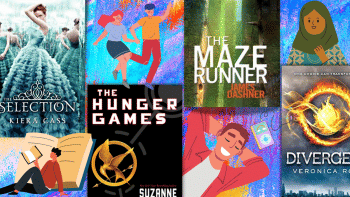
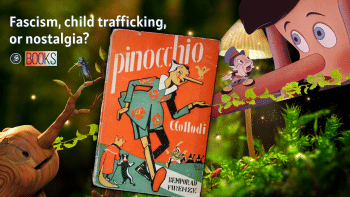
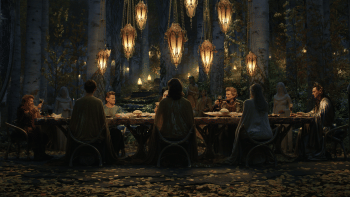
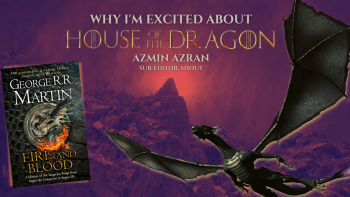
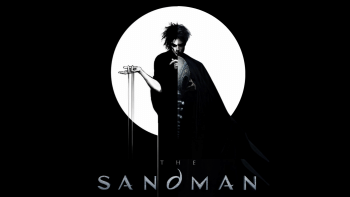





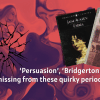


Comments